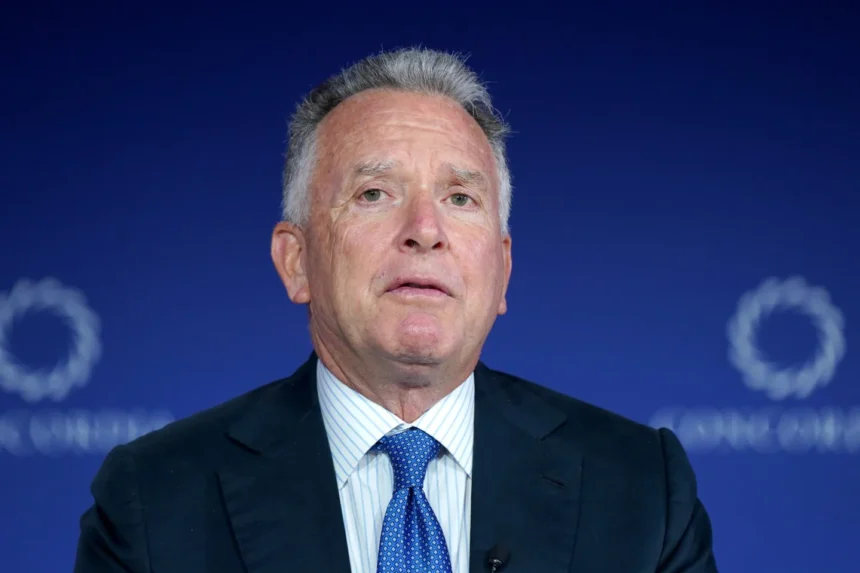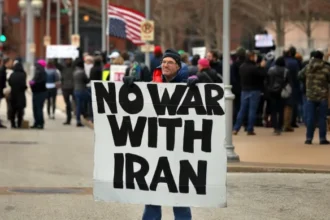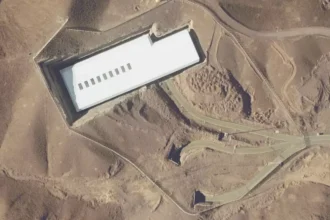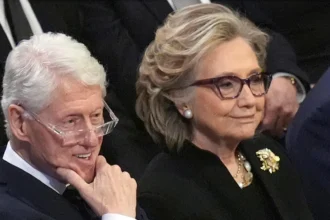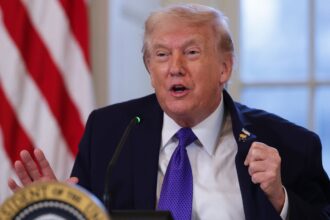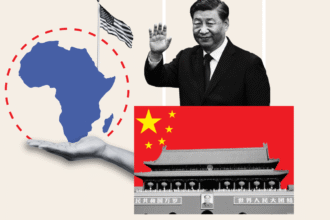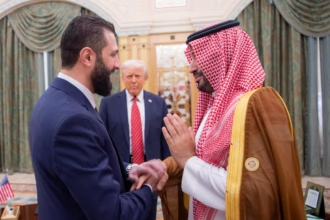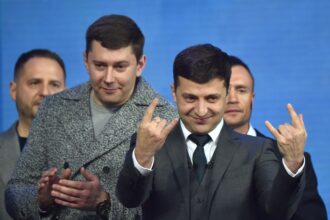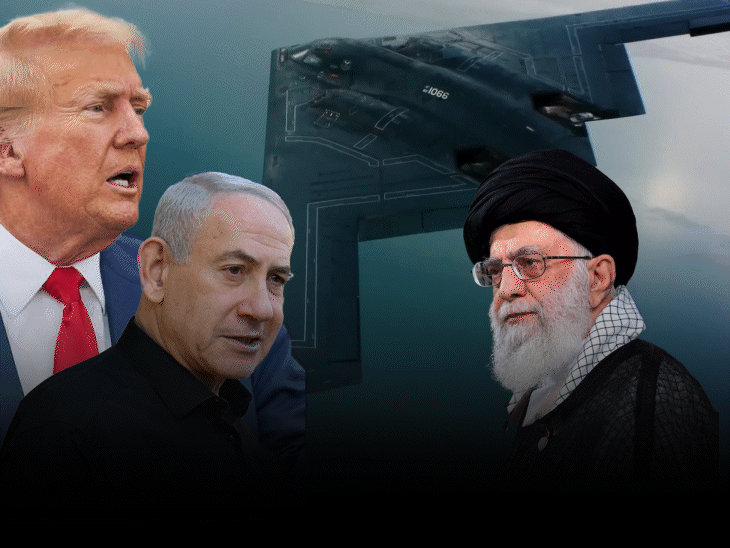In a move that escalates mounting scrutiny over President Donald Trump’s inner circle, Senate Democrats have launched a formal inquiry into Steve Witkoff, a prominent real estate mogul and longtime Trump confidant, who currently serves as Trump’s Special Envoy to the Middle East. Lawmakers are demanding full disclosure of Witkoff’s cryptocurrency investments and financial ties to Trump-linked businesses, raising concerns over conflicts of interest, international financial dealings, and violations of federal ethics rules.
Documents obtained by Senate staff reveal that Witkoff reported ownership of a cryptocurrency linked to the Trump brand as recently as August—months after assuming an official diplomatic post and despite federal requirements that executive branch appointees divest from financial assets that pose conflicts of interest.
- In a move that escalates mounting scrutiny over President Donald Trump’s inner circle, Senate Democrats have launched a formal inquiry into Steve Witkoff, a prominent real estate mogul and longtime Trump confidant, who currently serves as Trump’s Special Envoy to the Middle East. Lawmakers are demanding full disclosure of Witkoff’s cryptocurrency investments and financial ties to Trump-linked businesses, raising concerns over conflicts of interest, international financial dealings, and violations of federal ethics rules.
- Who Is Steve Witkoff?
- The Crypto Controversy
- Senate Demands Disclosure
- TrumpCoin? The Emerging Digital Political Economy
- Ethics Watchdogs Sound Alarm
- The Middle East Connection
- Witkoff Remains Silent
- Larger Implications
- Conclusion
Who Is Steve Witkoff?
Steve Witkoff is a billionaire real estate developer based in New York with longstanding business and personal ties to Donald Trump. Known for luxury property deals and foreign fundraising connections, Witkoff emerged as a key fundraiser for Trump’s 2024 presidential campaign before being appointed to his current envoy role.
As Special Envoy to the Middle East, Witkoff holds diplomatic authority to negotiate business and economic agreements across the region—a position that grants him access to sensitive financial channels and private business leaders across Saudi Arabia, Qatar, UAE, and Israel.
But his financial activities have triggered alarms in Washington.
The Crypto Controversy
According to ethics filings reviewed by Senate investigators, Witkoff maintained ownership of a Trump-associated cryptocurrency token even after assuming federal office. He did not report divesting from the digital asset or transferring it to a blind trust.
Senate Democrats argue this may violate provisions of the Ethics in Government Act and federal conflict of interest regulations that prohibit White House officials and envoys from maintaining assets that could benefit from U.S. foreign policy decisions.
Moreover, investigators are examining whether Witkoff may have used his role to promote digital currency ventures in the Middle East, where cryptocurrency regulation remains loose and often intersects with private political funding.
Senate Demands Disclosure
In an exclusive letter sent to Witkoff’s legal team, Senate Democrats pressed him to provide:
- A detailed list of cryptocurrency assets he owns or previously owned
- Information on any Trump-branded or Trump-linked tokens
- Disclosures of crypto trading platforms or offshore accounts used
- Funding sources for crypto acquisitions
- Any communications with Trump Organization executives regarding digital assets
- Plans to divest from holdings that may pose conflicts of interest
The letter warns that failure to comply could trigger subpoenas and ethics investigations.
TrumpCoin? The Emerging Digital Political Economy
At the center of the inquiry is a cryptocurrency believed to be tied to Trump-affiliated influencers, political fundraising entities, or informal Trump business networks. These pseudo-political cryptocurrencies—often created by anonymous developers—are bought and sold in speculative online communities.
Senators worry that such assets may provide unregulated channels for foreign funding of American political campaigns—a serious federal crime.
Critics warn that crypto tokens with political branding can:
| Risk | Explanation |
|---|---|
| Launder foreign donations | Crypto can bypass U.S. campaign finance oversight |
| Enable influence buying | Investors gain unofficial access to political networks |
| Evade sanctions | Middle East partners could move money secretly |
| Create conflicts of interest | U.S. officials may enrich themselves in office |
Ethics Watchdogs Sound Alarm
Experts say the investigation into Witkoff parallels previous scandals involving Jared Kushner and foreign investment funds.
“Allowing a senior diplomat to hold speculative cryptocurrency tied to his political patron is a recipe for corruption,” said one former government ethics lawyer.
“It’s Trump-era foreign policy all over again—blurring the line between personal wealth and public office.”
The Middle East Connection
Senators are reportedly exploring whether Witkoff’s crypto ties intersect with his recent travel to Saudi Arabia, Bahrain, and the UAE, where he has met with private sovereign investment groups. These same countries have rapidly embraced state-backed cryptocurrency projects, prompting concerns that U.S. envoys could broker private business deals under the cover of diplomacy.
A classified annex reportedly tracks Middle Eastern crypto wallets linked to U.S. political funding networks—and lawmakers want to know if Witkoff or Trump associates are involved.
Witkoff Remains Silent
Witkoff’s attorney has so far declined public comment. Sources close to his legal team suggest he may argue that:
- His crypto investments were minimal and passive
- He acted legally under current disclosure rules
- The Senate inquiry is politically motivated retaliation
- He has no obligation to divest from personal digital assets
But Democrats insist this is a national security and ethics issue, not a partisan attack.
Larger Implications
This case touches on multiple explosive political themes:
- Crypto regulation
- Foreign interference in elections
- Trump’s private business dealings
- Abuse of public office for profit
- Shadow fundraising networks
It also raises broader questions: Should political figures be allowed to hold volatile and anonymous digital assets while in public office? And what happens when cryptocurrency becomes a tool for unseen foreign influence?
Conclusion
The Senate inquiry into Steve Witkoff is more than a financial probe—it’s a flashpoint in the battle over ethical governance in the age of crypto politics. The outcome could shape future rules for U.S. officials, reshape campaign funding transparency, and shine a light on how digital assets may be used to influence American power structures.
If Witkoff fails to offer full disclosure, the investigation could widen—potentially drawing in other Trump allies, campaign operatives, and crypto financiers. This may become one of the most significant crypto-political scandals in recent U.S. history.

